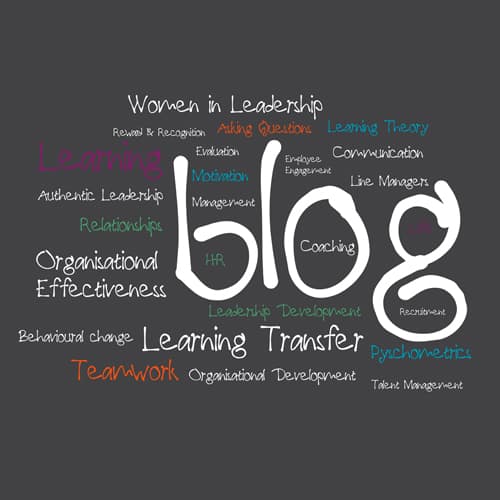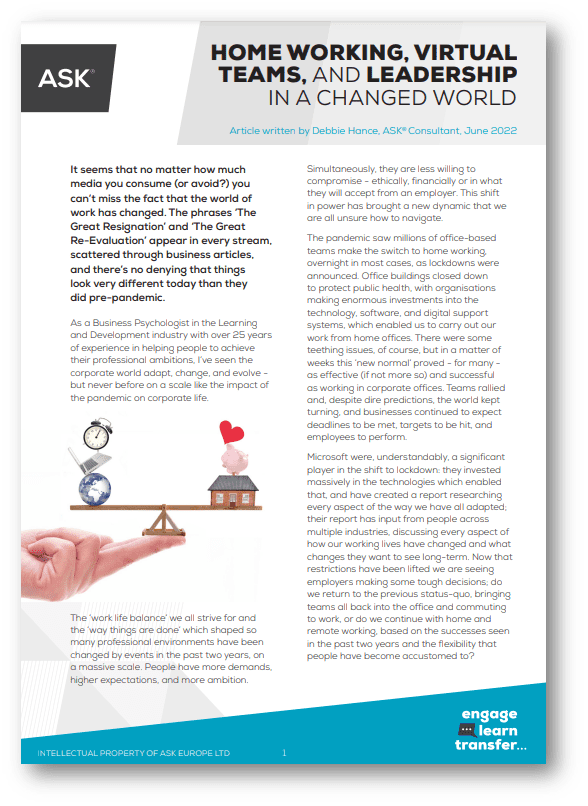The tightrope of success for women in leadership
How do you judge women in leadership?
It’s difficult to open an article on women in leadership without thinking of the women in power we are shown in the media. Those in politics, the glamourous magazines, serious media or Hollywood. The women who embody entirely different worlds, hold great power in wholly different ways, and yet are often judged by the same standards.
This was demonstrated once again recently with the announcement that Virgin Money are in talks to bring Irene Dorner on board as Chairman, making them the only FTSE 350 company with an all-female leadership team. This announcement saw social media light up with horror in response, calling it positive discrimination, claiming that the company are simply doing this for attention, and saying that ‘this wouldn’t be news if it were all men’ – a statement which is as sad as it is true.
During her position as Prime Minister, Theresa May saw as much coverage in the press for her choice of nail varnish and the height of her heels as she has for her policies and her stance on Brexit. Her appearance matters to the world press as much as her leadership skills – and the wrong shade of pink can overshadow her professional choices in a way that men in the same position simply never have to contend with.
Women with power are often reduced to soundbites. Anything of worth they discuss is glossed over, and any mistakes gleefully hollered from the rooftops. Those with Hollywood clout who voice political views or challenge the status quo are scoffed at, and told to get back into their gilded cage.
There is criticism for any woman who places importance in her appearance, and those who make a visible effort are reduced to nothing but decoration, ignored or scorned for holding opinions or joining debate. Those who, at the far end of that same scale, are judged to care too little about their appearance, who dare to leave their homes in trainers and without make up, are belittled just as much and written off as ‘lazy and grubby’, their less glamorous voices also ignored.
Any woman who wants to step into a leadership role must not only prove that she has the experience, knowledge and skills that the role requires, but must continue to do so above and beyond the abilities of her male peers, while simultaneously walking the fine line between ‘irreverent fashionista’ and ‘dowdy marm’, maintaining an alluring, but not too alluring, image, charming her associates and clients, but not too much, and leading and guiding her team without seeming too bossy or domineering – buzzwords thrown at any woman with a strong voice.
Women who are confident and firm are criticised, but those who take a back seat are scoffed at for their softness.
It can seem that there is no right way to be a woman in leadership, and the pressures of having to prove your worth and earn your place time and time again can put many women off even applying for promotion or progression.
Women are also more likely to question their own experience and qualifications, to see a list of requirements for a role and write off or downplay their knowledge or skills and assume they won’t meet the criteria – or worry that they may be seen as bragging if they do go ahead and put their names in the hat, where their male counterpart might be praised for his confidence.
Women in positions of power can be feared, revered, adored or torn apart, and the response to their success can turn on a penny.
Women leadership needs to be take n seriously
When you are faced with a world this complex, and a history of male-dominated board rooms who haven’t fully adjusted to the idea that women can be as vital to the progression of any organisation as men, it’s unsurprising that there are still so few women in leadership putting themselves forward, or being taken seriously.
What can be done to challenge this role, and how can you prepare yourself for promotion, leadership and progress? Why is the very face that women have stepped into leadership roles newsworthy, and what can be done to challenge a world in which any woman who works her way to the top is assumed to have been given the role because of ‘positive discrimination’ or ‘political correctness gone mad’? How many women with power and expertise are battling against an undercurrent of dismissive employees assuming that they don’t deserve their role, and being accused of bossiness for doing their job?
Our consultants and associates have spent many years working with women in leadership, studying the psychology and dynamics of various industries and organisations of all sizes, and with women from all backgrounds as they progress through their career, and we have brought all of that knowledge and experience together in our range of ‘Women in Leadership’ programmes – which include guidance, training, applicable learning and mentoring which have a lasting and significant impact on the approach you take to leadership, the success of your development, and the confidence you have in your own abilities and leadership skills.
We take enormous pride in working with brilliant, knowledgeable women and enabling them to embody all that makes a brilliant leader, confidently and successfully applying their knowledge and experience to their role, and inspiring their workforce to reach a higher standard and greater success.
Perhaps we can’t change the world – but we can help you to be the best that you can be, and change people’s opinions of women in leadership by showing how successful women can be at any professional level.

If you want to learn more about our Women in Leadership programmes, or the mentoring our consultants offer, call 01234 757575 today, email hello@askeurope.com or download the guide from our website, and we can arrange a meeting to discuss your goals, and how we can help you to achieve them.



